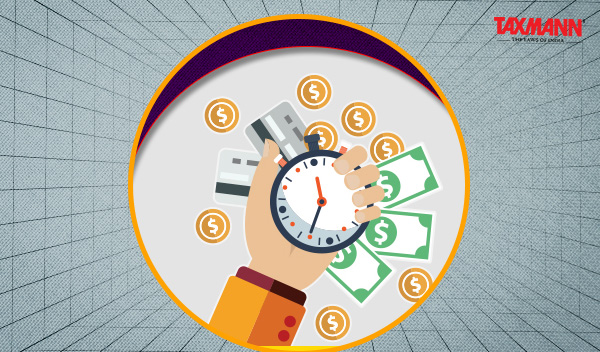CPC Can Levy Late Fee u/s 234E and Interest u/s 201 | ITAT
- News|Blog|Income Tax|
- 2 Min Read
- By Taxmann
- |
- Last Updated on 17 July, 2025

Case Details: Chate Tutorials (P.) Ltd. vs. ACIT, TDS Circle - [2025] 176 taxmann.com 337 (Pune-Trib.)
Judiciary and Counsel Details
- Dr. Manish Borad, Accountant Member & Vinay Bhamore, Judicial Member
-
Aditya Navandar for the Appellant.
-
Ramnath P. Murkunde for the Respondent.
Facts of the Case
The assessee, a trust, filed its TDS statement after the due date. During the processing of the statement, the Centralised Processing Cell (CPC) levied a late fee under section 234E. The assessee contended that the levy of late fee was beyond the jurisdiction of the CPC and filed an appeal to the CIT(A).
The CIT(A) confirmed the levy. The aggrieved assessee filed an appeal to the Pune Tribunal.
ITAT Held
The Tribunal held that section 200A(1) provides the mechanism for processing the TDS returns/statements. Sub-section (2) of section 200A gives the powers to the Board to make a Scheme for Centralised Processing of statements. For online processing of the statements of TDS by CPC, the intent is that the work that the Assessing Officers were previously carrying out to process the TDS returns having jurisdiction over the particular Circle/Ward can be carried out by the Centralised Processing Cell in a faster and effective manner.
For such ease of processing the TDS statements, subsection (2) of section 200A gives the power to the Board to frame the Scheme for Centralised Processing of statements. In sub-section (2) of section 200A, along with mentioning the words determining the “tax payable or refund due”, is also followed by the phrase “as required under subsection (1)”. So on one hand there is the word “tax payable” and on the other hand a reference is given to the processing of the statement as per sub-section (1).
This clearly shows the intent of the section 200A and the same has to be interpreted in this manner that the CPC constituted by the Board under section 200A(2) of the Act shall process the TDS statements as provided under sub-section (1) of section 200A and even though the words in sub-section (2) of section 200A mentioned is “tax payable but the same has to be read in totality with the intent of section 200A of the Act and therefore it actually is meant to determine the “sum payable or refund due” to the deductor.
Therefore, the CPC is well within its jurisdiction to levy a late fee for the delay in filing the quarterly returns of TDS by the assessee as well as interest u/s 201 of the Act. Accordingly, the legal issue raised in the grounds of appeal raised by the assessee stands dismissed.
List of Cases Reviewed
- Rashmikant Kundalia v. Union of India [2015] 54 taxmann.com 200/229 Taxman 596/373 ITR 268 (Bombay) (para 21) Followed.
List of Cases Referred to
- Inder Singh v. State of Madhya Pradesh judgment dated 2025 INSC 382 (para 6)
- Rashmikant Kundalia v. Union of India [2015] 54 taxmann.com 200/229 Taxman 596/373 ITR 268 (Bombay) (para 21).
Disclaimer: The content/information published on the website is only for general information of the user and shall not be construed as legal advice. While the Taxmann has exercised reasonable efforts to ensure the veracity of information/content published, Taxmann shall be under no liability in any manner whatsoever for incorrect information, if any.

Taxmann Publications has a dedicated in-house Research & Editorial Team. This team consists of a team of Chartered Accountants, Company Secretaries, and Lawyers. This team works under the guidance and supervision of editor-in-chief Mr Rakesh Bhargava.
The Research and Editorial Team is responsible for developing reliable and accurate content for the readers. The team follows the six-sigma approach to achieve the benchmark of zero error in its publications and research platforms. The team ensures that the following publication guidelines are thoroughly followed while developing the content:
- The statutory material is obtained only from the authorized and reliable sources
- All the latest developments in the judicial and legislative fields are covered
- Prepare the analytical write-ups on current, controversial, and important issues to help the readers to understand the concept and its implications
- Every content published by Taxmann is complete, accurate and lucid
- All evidence-based statements are supported with proper reference to Section, Circular No., Notification No. or citations
- The golden rules of grammar, style and consistency are thoroughly followed
- Font and size that’s easy to read and remain consistent across all imprint and digital publications are applied



 CA | CS | CMA
CA | CS | CMA
